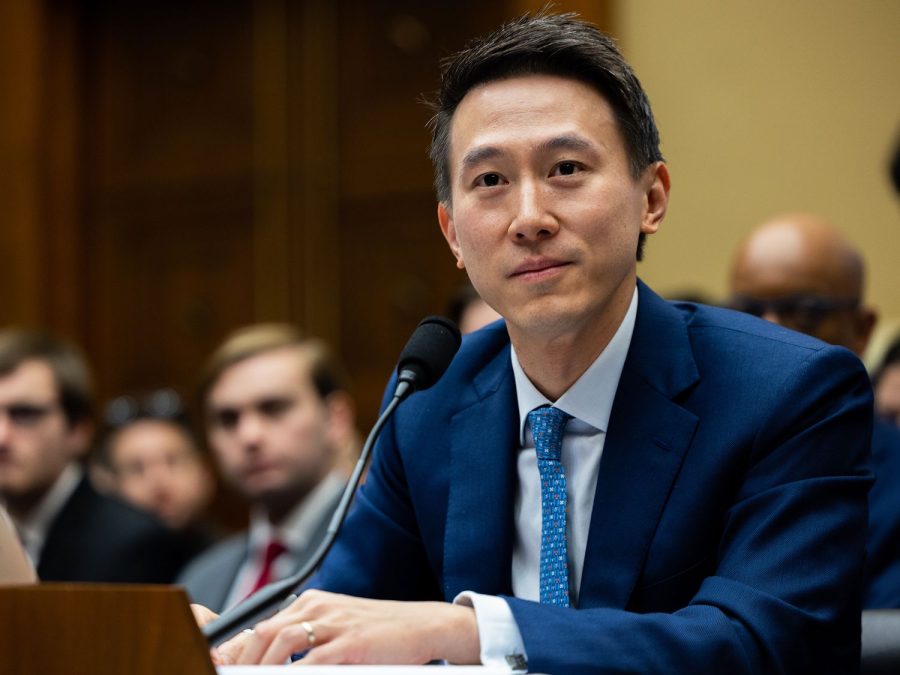The European Commissioner overseeing the digital market, Thierry Breton, has called on Chinese video-sharing platform TikTok to expedite its adoption of new EU standards.
With strict regulations on transparency, data privacy, child protection, disinformation, and hate speech set to take effect next month, internet giants are racing to comply.
Recently, TikTok conducted a “stress test” at its European headquarters in Dublin to assess its ability to adhere to the EU Digital Services Act (DSA). Commissioner Breton had emphasized the importance of accelerated compliance, echoing a similar message conveyed to Twitter when it performed a stress test earlier this year. This article delves into the implications of the upcoming EU regulations on tech companies and TikTok’s efforts to meet the requirements.
As the EU prepares to enforce its stringent rules on various aspects of digital services, including data protection and content moderation, internet companies are facing mounting pressure to align their operations accordingly. The EU Digital Services Act, which became law in November, mandates platforms like Amazon, Apple, Google, Meta, Microsoft, and TikTok to be fully compliant by August 25. Failure to meet these standards could result in significant penalties and reputational damage for the non-compliant companies.
Read also: UK Fines TikTok £12.7m For Breaching Data Protection Regulation
TikTok’s Stress Test at the European Headquarters
In response to the upcoming EU regulations, TikTok conducted a “stress test” at its European headquarters in Dublin. The purpose of this test was to assess the platform’s ability to adapt and comply with the requirements set forth by the EU DSA. The stress test aimed to evaluate TikTok’s capacity to ensure transparency, safeguard user data privacy, protect minors from harmful content, combat disinformation, and tackle hate speech effectively.
Following the stress test, Thierry Breton, the European Commissioner responsible for overseeing the digital market, engaged in a conversation with TikTok’s CEO, Shou Zi Chew. During this dialogue, Commissioner Breton emphasized the urgent need for TikTok to accelerate its efforts to achieve full compliance with the EU standards. The stress test results likely raised concerns about TikTok’s preparedness to meet the forthcoming regulatory requirements.
Learning from Twitter’s Stress Test
In a similar move earlier this year, Commissioner Breton urged US-based platform Twitter to perform a stress test to evaluate its capability to moderate suspicious content effectively. The stress test, which assessed Twitter’s readiness to comply with EU regulations, likely served as a learning experience for both the company and regulators. The results of the Twitter stress test could have influenced the expectations and assessment criteria for TikTok’s own stress test.
The EU Digital Services Act (DSA) Explained
The EU Digital Services Act is a comprehensive legislative framework aimed at regulating digital platforms’ operations within the European Union. It addresses several critical areas, including:
Transparency: Platforms are required to be transparent about their content recommendation algorithms and policies for user data handling.
Data Privacy: Stricter data protection measures are mandated to ensure the privacy and security of user data.
Child Protection: Online platforms must take measures to protect minors from harmful content and interactions.
Disinformation: Steps should be taken to combat the spread of false information and disinformation on digital platforms.
Hate Speech: The DSA mandates platforms to tackle hate speech effectively and prevent its proliferation online.
TikTok creators can now restrict videos to adult viewers only
Challenges and Opportunities for TikTok
As TikTok seeks to comply with the EU DSA, the platform faces various challenges, given its massive user base and the diverse content uploaded daily. Ensuring robust content moderation and tackling disinformation and hate speech in multiple languages pose significant difficulties. Moreover, safeguarding the privacy and security of user data while providing a seamless user experience will demand meticulous planning and technological enhancements.
However, TikTok’s efforts to meet the EU standards present an opportunity for the platform to enhance its reputation and user trust. By demonstrating its commitment to user safety, data protection, and content integrity, TikTok can strengthen its position in the European market and foster a more resilient and sustainable digital ecosystem.
With the implementation of the EU Digital Services Act just around the corner, internet giants like TikTok are under immense pressure to comply with strict regulations on transparency, data privacy, child protection, disinformation, and hate speech. TikTok’s recent stress test at its European headquarters has highlighted the need for accelerated efforts to achieve full compliance. European Commissioner Thierry Breton’s call to speed up the compliance process underscores the seriousness of the matter. The upcoming regulatory landscape presents both challenges and opportunities for TikTok, requiring the company to navigate a complex path towards ensuring user safety, data protection, and content integrity. Embracing these changes and demonstrating a commitment to meeting the EU standards can pave the way for TikTok to strengthen its reputation and foster trust among its European user base.




